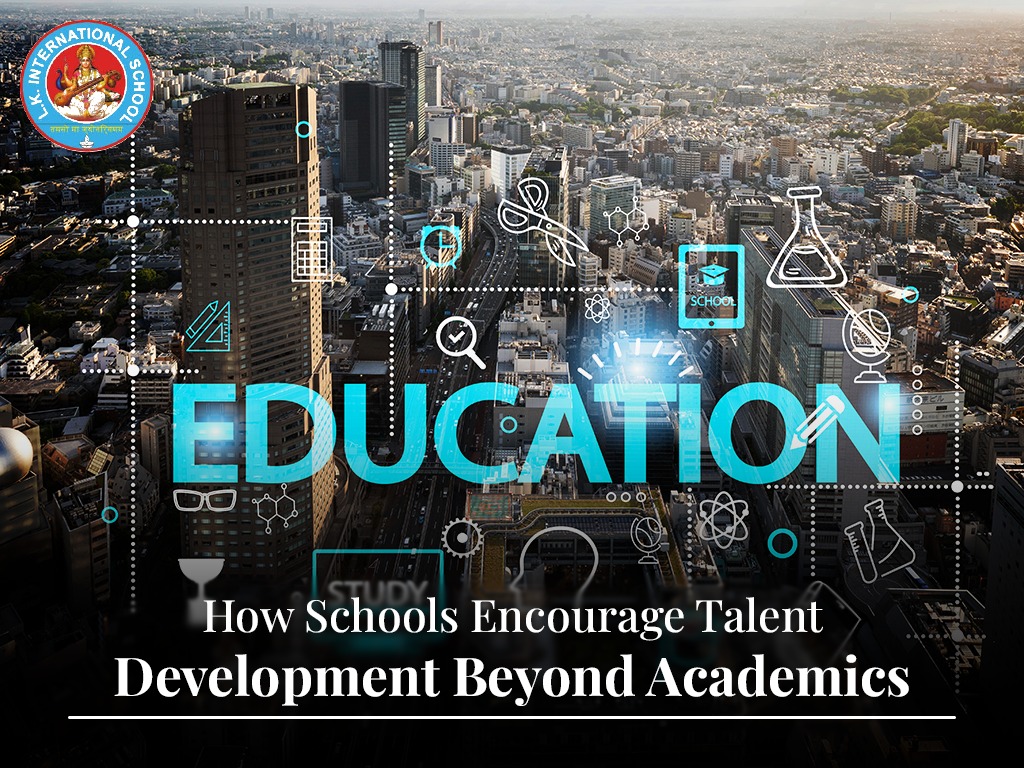Introduction:
In today’s rapidly evolving world, schools are redefining education by going beyond traditional academics. While achieving academic excellence remains crucial, modern educational institutions recognize the importance of nurturing diverse talents in their students. At L.K. International School, the Top Schools in Ghaziabad where this holistic approach ensures learners are well-rounded individuals ready to excel in all aspects of life. One exemplary institution embracing this ethos is a reputed educational center known for its dynamic talent development programs.
1. Sports and Physical Fitness Programs
Physical education plays a pivotal role in developing teamwork, discipline, and leadership. Leading institutions provide world-class sports facilities, allowing students to engage in activities like basketball, football, cricket, badminton, and more. These programs not only enhance physical fitness but also instill qualities like resilience and perseverance. Moreover, certified coaches and regular inter-school competitions further enrich the experience, pushing students to achieve excellence on the field.
2. Creative Arts for Self-Expression
Schools understand that creativity is essential for innovation and problem-solving. With state-of-the-art art studios, music rooms, and drama theaters, learners have abundant opportunities to explore their artistic passions. From painting and sculpting to acting and playing musical instruments, these avenues provide students a platform to express themselves and build confidence. Annual art exhibitions and cultural events also encourage young artists to showcase their talents to a broader audience.
3. STEM and Innovation Labs
The future belongs to innovators, and schools are equipping students with cutting-edge skills in science, technology, engineering, and mathematics (STEM). Advanced robotics labs and coding classes help learners develop critical thinking and technical expertise. Regular workshops, hackathons, and science fairs inspire creativity and practical application, preparing students to thrive in the digital age.
4. Leadership and Entrepreneurship Programs
Encouraging leadership from a young age builds confidence and decision-making abilities. Many educational institutions offer leadership clubs, student councils, and entrepreneurship initiatives. Through these, students organize events, manage teams, and even start their own ventures. These activities teach time management, resource allocation, and collaboration, essential skills for future leaders.
5. Life Skills Development
Talent development extends to essential life skills like communication, critical thinking, and emotional intelligence. By integrating programs such as public speaking clubs, debate societies, and mindfulness workshops, schools aim to foster well-rounded personalities. Students learn to articulate ideas clearly, manage stress effectively, and navigate relationships with empathy and understanding.
6. Inclusive and Diverse Learning Opportunities
Inclusivity is a cornerstone of holistic education. Schools create an environment where every learner feels valued, regardless of their background or abilities. Initiatives like cultural exchange programs, diversity clubs, and language learning classes broaden perspectives and prepare students for global citizenship.
7. Community Engagement and Social Responsibility
Talent development isn’t just about individual growth—it’s also about contributing to society. Schools instill a sense of social responsibility through activities like community service projects, environmental campaigns, and volunteering opportunities. These initiatives encourage students to make a positive impact, nurturing compassionate and socially aware individuals.
8. Extracurricular Activities and Clubs
From robotics and astronomy to photography and culinary arts, extracurricular activities enable students to explore interests beyond the classroom. Schools offer a variety of clubs tailored to different talents, ensuring learners can find their niche. Regular participation in these activities develops hobbies into lifelong passions and even potential career paths.
9. Cultural Heritage and Traditional Arts
Incorporating traditional arts and cultural heritage in education bridges the gap between the past and the present. Schools organize folk dance performances, classical music lessons, and workshops on crafts like pottery or weaving. This fosters an appreciation for cultural roots while encouraging creativity.
10. Mentorship Programs
Personalized guidance is integral to unlocking a student’s potential. Through mentorship programs, experienced educators and professionals provide individualized support, helping learners navigate their aspirations. Mentorship builds confidence, offers career insights, and inspires students to aim higher.
11. Recognition and Motivation
Celebrating achievements motivates students to continue excelling. Many institutions implement reward systems like certificates, medals, and scholarships for accomplishments in sports, arts, or social initiatives. Recognizing effort and success ensures that students feel valued and inspired.
12. Collaborative Learning Environment
A collaborative approach encourages peer learning and shared experiences. Group projects, team challenges, and interactive learning sessions help students build camaraderie and hone interpersonal skills. This nurturing environment allows learners to thrive collectively, fostering a sense of belonging and mutual respect.
13. Technology Integration
Smart classrooms and digital tools have transformed how education is delivered. Interactive learning platforms and virtual reality experiences make lessons engaging, sparking curiosity in young minds. Schools adept at integrating technology empower students to explore beyond textbooks, making learning dynamic and impactful.
14. Global Exposure
Partnerships with international institutions provide students with unparalleled global exposure. Exchange programs, virtual collaborations, and overseas trips open new horizons, helping learners understand diverse cultures and global challenges. This broadens their worldview and equips them for an interconnected world.
15. Health and Wellness Programs
Emotional and mental well-being is as critical as academic success. Schools invest in counselors, wellness programs, and yoga or meditation sessions to support students’ overall health. Creating a nurturing environment ensures learners are emotionally balanced and capable of handling challenges.
Conclusion
Schools committed to talent development beyond academics are shaping the future of education. At L.K International School, the Best Schools in Ghaziabad where by focusing on sports, arts, STEM, leadership, inclusivity, and well-being, they provide learners with comprehensive growth opportunities. These institutions understand that true success lies in empowering students to excel in all aspects of life, ensuring they emerge as confident, capable, and compassionate individuals.
